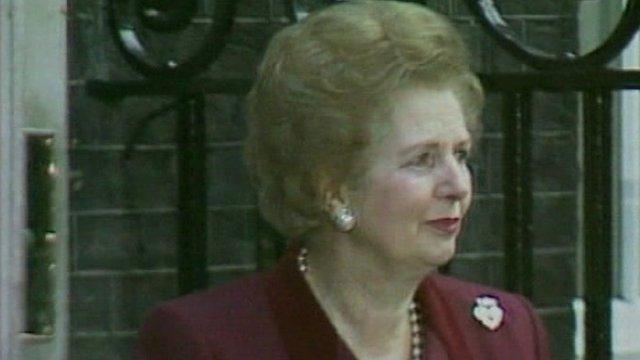Mitterrand seduces France again with letters to his lover
- Published
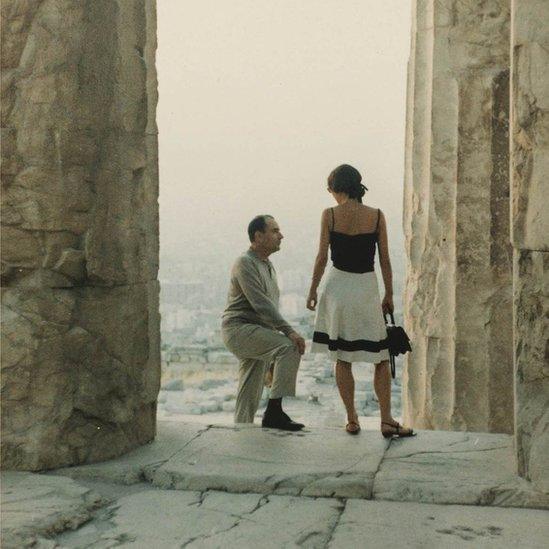
"That unity where soul and body intermingle" - the letters remove any doubt that Anne Pingeot, though 27 years his junior, was the most important woman in Francois Mitterrand's life
The late Socialist President Francois Mitterrand was known as the great seducer of French politics. Now, more than 20 years after he died, the seducer is at it once again.
France's publishing sensation of the year is this week's release of Mitterrand's Letters to Anne, a book containing more than 1,200 letters sent to his secret lover (and, from 1974, mother to his child) Anne Pingeot between 1962 and his death in 1996.
The letters show a side of the president that his sphinx-like public persona never betrayed. They are full of love, tenderness and devotion, and expressed in a French that has literary critics baying with delight.
Small wonder that the book's launch - coinciding with the centenary of Mitterrand's birth near Cognac - has triggered a bout of nostalgia for the great man, against whom modern-day presidents seem to shrivel by comparison.
Mitterrand was a socialist senator and former minister 46 years of age when he met Anne Pingeot - 27 years his junior - on the beach at Hossegor in south-west France.

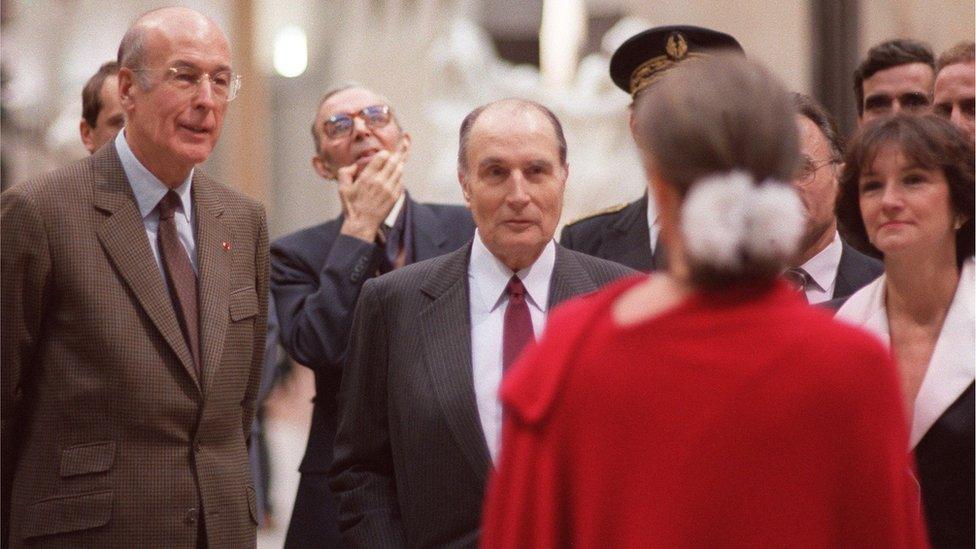
Mr Mitterrand (centre) looks on at Anne Pingeot in 1986 during a visit to the Musee D'Orsay where she was curator
Excerpts from Letters to Anne
25 July 1965: The strength of my love comes from what the long months have given us of intellectual understanding, shared curiosity, subtle pleasure, aesthetic communion, attraction to the essential and simple things in life - finally culminating in what then comes like a storm in July... the evidence of that unity where soul and body intermingle
16 July 1970: I love your body, the joy that flows through me when I possess your mouth, the possession that burns me with all the fires of the world, the surging of my blood deep in the heart of you, your pleasure which bursts from the volcano of our bodies, a flame in space, the burning

She was the daughter of a prominent Catholic family from Clermont-Ferrand (related to the Michelin tyre magnates), and it was her father who initially befriended Mitterrand.
The first recorded letter is from October 1962, when he promises to send Anne a copy of a book on Socrates. Two years later, it is clear that the two have become lovers, as the formal vous gives way to the intimate tu.
The letters remove any doubt that Anne was the most important woman in Mitterrand's life.
Since 1944 he had been married to Danielle Gouze, and they had two sons, Jean-Christophe and Gilbert. Throughout his political career Danielle - with her own assertive political views - was his official companion.
But behind the scenes he was nurturing, and nurtured by, his love for Anne, who went on to become a specialist in 19th Century sculpture and a curator at the Orsay Museum in Paris.

Anne Pingeot's 1978 picture of Francois Mitterrand at Massevaques, one of his favourite areas of France
Despite the age gap, they shared interests in literature, France, art and ideas - and Mitterrand evidently felt in Anne someone with whom he could commune on an almost spiritual plane.
"Near to you, united to you, in you - that is what I am. It is the unbelievable paradox: I exist at the very moment that I dissolve into you," he writes shortly after they have become lovers in 1964.
He calls her Nannon, Nannour and Animour. She calls him Cecchino. Among the endearments and the eroticism, there are also politics and everyday goings-on - as Mitterrand (clearly with an eye to the letters being published) recounts his ascent towards the presidency.
The letters are most frequent up until 1974, when their daughter Mazarine is born. From that point, the three have a kind of home life - albeit a secret one - so there is less need for correspondence.
At the end of his life, suffering from cancer, he writes to Anne from the Brittany island of Belle-Ile: "My happiness lies in thinking of you and loving you. You have always brought me more. You have been my chance in life. How can my love not still grow?"
Reaction to the book of letters has been almost whole-heartedly positive. As an editorialist said in the financial daily Les Echos: "Who would have thought that one day Mitterrand would touch our hearts?"
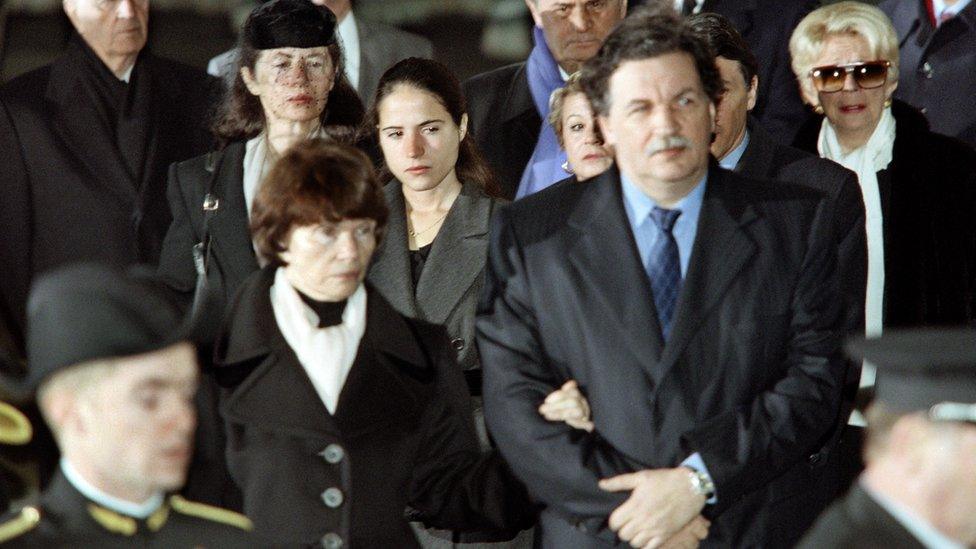
At Mitterrand's funeral, Anne Pingeot could be seen wearing a veil with their daughter Mazarine standing behind Mitterrand's widow Danielle and son Jean-Christophe
For Mitterrand loyalists, the letters are not only proof that their hero was a great literary stylist. They also go some way to dispelling the widely held caricature of Mitterrand as a cynical quasi-Pharaoh.
For many others, they are a reminder - whatever Mitterrand's shortcomings - of what it was like to have a president who fitted the part.
Much fun has been had from mocking comparisons with two more recent occupants of the Elysee - and their less elevated amorous utterances: "With Carla [Bruni], it's for real!" - Nicolas Sarkozy, and "I hereby declare I have brought to a close my shared life with Valerie Trierweiler," - Francois Hollande (via an official statement).
As for Anne Pingeot herself, now 73, her discretion remains total. Having kept the 1,218 letters in shoeboxes all these years, she agreed to publish only on condition she play no part in the book's promotion. There will be no interviews.
Some say she wants to set the record straight. For years the French have seen her as a victim: the lover forced to hide her love and, when Mitterrand died, to grieve alone with her daughter.
With this book, she becomes a central figure in the story of modern France.

Who was Francois Mitterrand?
President from 1981-1995, revived Socialism in France and saw relationship with Germany as key to European unity
Wounded at the start of World War Two, he joined the Vichy regime which collaborated with Nazi Germany
Later, he joined the Resistance and met Gen Charles de Gaulle, becoming part of his emergency administration
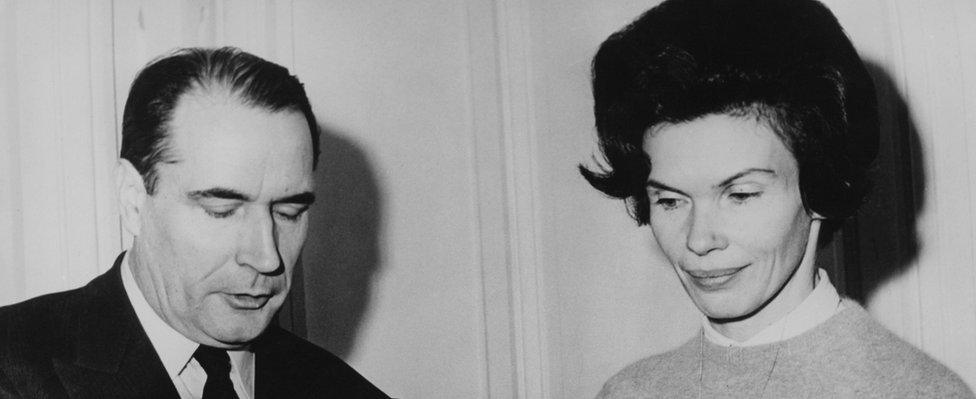
Francois Mitterrand met his wife-to-be, Danielle Gouze, while she was a nurse in the Resistance
He married Danielle in 1944 and served as minister for several years in the late 1940s and 1950s
They had three sons; one died aged two months
Mitterrand bid unsuccessfully for the presidency against de Gaulle in 1965 and Giscard d'Estaing in 1974
Aged 46, he met Anne Pingeot who was then 19. Mazarine was born in 1974
He died of prostate cancer in January 1996
- Published22 November 2011
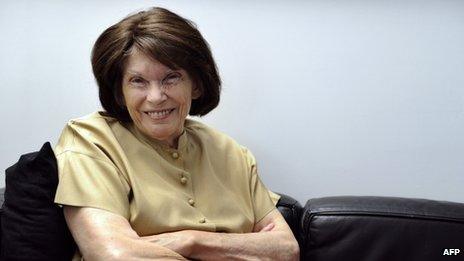
- Published18 March 2013
